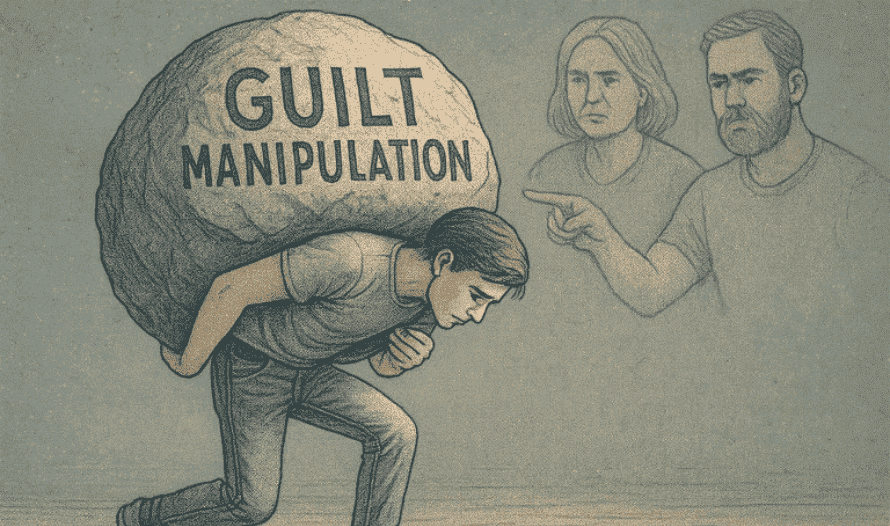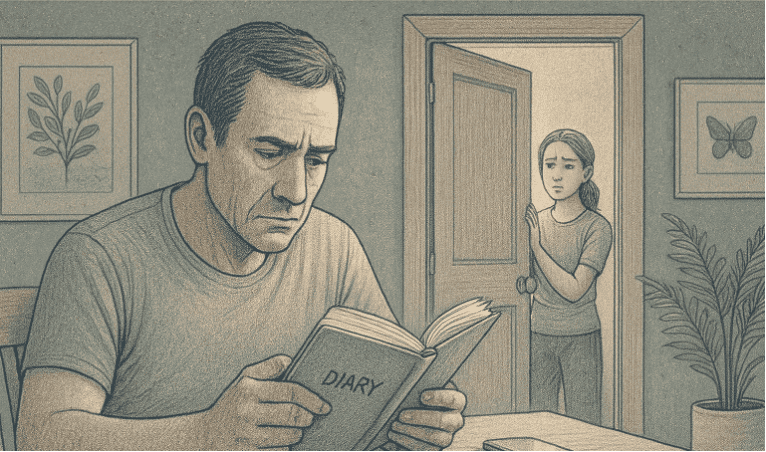
Key Takeaways
- Emotional abuse from parents often shows up as constant criticism, humiliation, and comparisons, leaving lasting self-doubt and a harsh inner critic well into adulthood.
- Manipulation and guilt-tripping are common tactics, making children feel responsible for their parent’s happiness while their own needs are ignored.
- Love and affection may be withheld as punishment, teaching children that approval is conditional and creating lifelong struggles with anxiety, abandonment fears, and people-pleasing.
- Gaslighting and extreme control distort reality and autonomy, causing adults to question their own memories, doubt their decisions, and struggle with independence in relationships and life.
- Mission Connection provides specialized therapy for adults healing from family emotional trauma through individual counseling, group support, and trauma-focused treatment approaches.
Understanding Emotional Abuse from Parents: Why Recognition Matters
Emotional abuse can be one of the hardest forms of mistreatment to recognize because it often hides behind the label of “discipline” or even “care.” Without visible scars, it’s easy for both parents and children to overlook or downplay the damage.
Many adult children of emotionally abusive parents struggle with self-doubt because on the surface, their needs were met. They had food, a roof over their head, maybe even opportunities, but beneath that, their sense of self, trust, and worth was chipped away. Those hidden wounds often shape how they approach careers, relationships, and even their own inner dialogue.
What makes it even more complicated is that many parents truly believe they’re acting in their child’s best interest. This leaves the child, now an adult, wrestling with guilt, confusion, and the weight of conflicting feelings. But the absence of bad intentions doesn’t erase the harm caused.
Recognizing emotional abuse for what it is opens the door to healing. It affirms that the pain is real, the experiences matter, and recovery is possible with the right support.
Mission Connection offers flexible outpatient care for adults needing more than weekly therapy. Our in-person and telehealth programs include individual, group, and experiential therapy, along with psychiatric care and medication management.
We treat anxiety, depression, trauma, and bipolar disorder using evidence-based approaches like CBT, DBT, mindfulness, and trauma-focused therapies. Designed to fit into daily life, our services provide consistent support without requiring residential care.
5 Key Signs of Emotional Abuse from Parents
1. Constant Criticism and Humiliation
Emotionally abusive parents rarely offer genuine praise or encouragement. Instead, they focus relentlessly on flaws, mistakes, and shortcomings. This criticism extends beyond specific behaviors to attacks on your character, appearance, intelligence, or fundamental worth as a person.
The criticism often comes disguised as “help” or “motivation.” Phrases like “I’m only saying this because I love you” or “This is for your own good” frequently precede devastating attacks on your self-esteem. The parent may compare you unfavorably to siblings, other children, or impossible standards, ensuring you never feel good enough.
Humiliation tactics include mocking your interests, dreams, or fears in front of others, sharing embarrassing stories to make you feel small, or deliberately putting you in situations where you’re likely to fail or look foolish. The message consistently communicated is that you’re inadequate, disappointing, or fundamentally flawed.
This pattern creates adults who struggle with imposter syndrome, perfectionism, and an internal critic that echoes their parent’s voice long after leaving home.
2. Emotional Manipulation and Guilt-Tripping
Emotionally abusive parents are masters of manipulation, using your love and desire for approval as weapons against you. They employ guilt, shame, and emotional blackmail to control your decisions and behavior, making you feel responsible for their emotions and well-being.
Common manipulation tactics include threatening suicide or self-harm when you don’t comply with their wishes, claiming you’re “ungrateful” or “selfish” for having needs or boundaries, or using phrases like “After everything I’ve done for you” to guilt you into submission.
They may play victim, portraying themselves as martyrs who sacrifice everything for ungrateful children. This manipulation makes you feel responsible for their happiness while your own emotional needs remain consistently ignored or dismissed.
Silent treatment is another form of emotional manipulation, where parents withdraw all communication and affection until you apologize or comply with their demands. This teaches you that love is conditional and that your worth depends on your ability to meet their emotional needs.

3. Withholding Love and Affection as Punishment
Healthy parents provide consistent love and support even when addressing behavioral issues. Emotionally abusive parents use love as a reward system, withdrawing affection, attention, or approval when you don’t meet their expectations or comply with their demands.
This conditional love teaches you that your worth depends entirely on your performance and compliance. You learn to suppress authentic parts of yourself in favor of versions that earn parental approval. The constant fear of losing love creates chronic anxiety and people-pleasing behaviors.
These parents may go days or weeks without speaking to you after perceived slights, ignore your achievements while dwelling on your failures, or explicitly state that they’re “disappointed” in you as a person rather than addressing specific behaviors.
The withdrawal of love as punishment is particularly devastating because children fundamentally need parental approval for healthy development. When that approval becomes a weapon, it creates adults who struggle with self-worth and fear abandonment in relationships.
4. Extreme Control and Invasion of Privacy
Emotionally abusive parents maintain excessive control over their children’s lives, extending far beyond age-appropriate guidance and boundaries. This control often continues into your adult years, with parents expecting detailed information about your decisions, relationships, and daily activities.
They may read your diary, texts, or emails without permission, monitor your friendships and romantic relationships obsessively, or make major decisions about your life without consulting you. This invasion of privacy communicates that you have no right to autonomy, personal space, or independent thought.
Control tactics include dictating your career choices, educational path, or living situations based on their preferences rather than your interests or abilities. They may use financial support as leverage to maintain control, threatening to withdraw assistance if you don’t comply with their wishes.
This excessive control creates adults who struggle with decision-making, have difficulty trusting their own judgment, and may either rebel completely or remain overly dependent on others for guidance.

5. Gaslighting and Denying Your Reality
Gaslighting involves consistently denying, minimizing, or distorting your memories and perceptions to make you question your own reality. Emotionally abusive parents excel at this technique, ensuring you can never quite trust your own experience of events.
They may deny saying hurtful things, claim you’re “too sensitive” or “overreacting” to their behavior, or insist that abusive incidents “never happened” or weren’t as bad as you remember. This systematic undermining of your reality creates deep self-doubt and confusion.
When you try to address their behavior, they may turn the conversation back to your supposed flaws, accuse you of being “dramatic” or “attention-seeking,” or claim they’re the real victim in the situation. This deflection prevents any meaningful discussion or accountability.
Gaslighting is particularly insidious because it attacks your ability to trust your own perceptions and memories. Adults who experienced parental gaslighting often struggle with decision-making, frequently seek external validation, and have difficulty trusting their intuition in relationships.
Mission Connection: Specialized Support for Family Trauma

Healing from parental emotional abuse requires a specialized understanding of family dynamics, trauma responses, and the complex emotions involved in processing harm from people who were supposed to provide love and safety. At Mission Connection Healthcare, our therapists are trained in family trauma and understand the unique challenges adult children of emotionally abusive parents face.
Our individual therapy programs provide safe spaces to explore your experiences without judgment, helping you distinguish between healthy and unhealthy family dynamics while developing stronger self-trust and emotional regulation skills. We use trauma-focused approaches that address both the immediate symptoms and underlying wounds created by early emotional abuse.
Group therapy sessions specifically designed for family trauma survivors offer opportunities to connect with others who understand these experiences firsthand. These groups provide validation, reduce isolation, and help you practice healthier communication and boundary-setting skills in a supportive environment.
We offer both in-person and telehealth options across California, Virginia, and Washington, understanding that flexibility is often essential when healing from family trauma. Some survivors need the safety of virtual sessions initially, while others benefit from in-person connection and support.
Our comprehensive approach includes individual therapy, group support, and psychiatric services when beneficial, ensuring you have access to all the resources needed for healing and recovery from family emotional trauma.
Call Today 866-833-1822.
Frequently Asked Questions (FAQ)
How do I know if what I experienced was really emotional abuse or just strict parenting?
Emotional abuse involves consistent patterns that attack your sense of self-worth, use fear and guilt as primary motivators, and prioritize the parent’s emotional needs over the child’s healthy development. Strict but healthy parenting includes clear boundaries while maintaining respect, unconditional love, and support for the child’s individual growth and autonomy.
Is it possible to have a relationship with emotionally abusive parents?
Some adult children maintain limited relationships with emotionally abusive parents through careful boundary-setting and realistic expectations. Others find that no contact is necessary for their mental health and recovery. Working with a therapist can help you determine what level of contact, if any, serves your well-being and healing process.
Why do I still love my emotionally abusive parents despite the harm they caused?
Loving parents who harmed you is normal and doesn’t invalidate your experiences or minimize the abuse. Children are biologically programmed to love and seek attachment with caregivers, regardless of how those caregivers treat them. Healing involves holding both the love and the hurt while protecting yourself from ongoing harm.
Will I repeat these patterns with my own children?
Awareness is the most powerful tool for breaking generational cycles. Many adults who experienced parental emotional abuse become especially committed to healthy parenting practices. Therapy, parenting classes, and ongoing self-reflection help ensure you develop the skills to provide the emotional safety and support you didn’t receive.
What types of therapy help with healing from parental emotional abuse?
Mission Connection Healthcare offers individual and group therapy using approaches specifically effective for family trauma, including EMDR, cognitive processing therapy, Internal Family Systems (IFS), and dialectical behavior therapy (DBT). Our comprehensive programs address the complex emotions and relationship patterns that result from early emotional trauma while building healthier coping strategies and self-worth.





